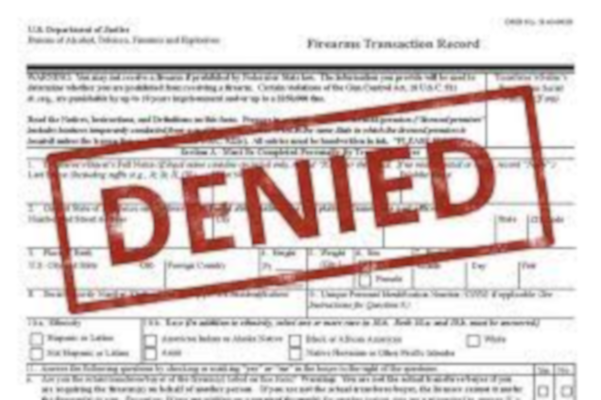The purchase of firearms in the United States is heavily regulated to ensure that they do not fall into the wrong hands. One of the ways in which this regulation is accomplished is through background checks, which are conducted by the Federal Bureau of Investigation (FBI) through the National Instant Criminal Background Check System (NICS). However, there are instances where a background check may result in a denial of the purchase of a firearm. In such cases, individuals have the right to appeal the decision through a process known as the Firearms Purchase Background Check Appeal Process.
The background check process for firearms purchases is conducted in accordance with the Brady Handgun Violence Prevention Act of 1993, also known as the Brady Law. The law requires that licensed firearms dealers, also known as Federal Firearms Licensees (FFLs), conduct a background check on any individual seeking to purchase a firearm. The background check is designed to identify individuals who are prohibited by law from owning or possessing firearms, such as convicted felons, domestic abusers, and those with mental health issues.
When a background check is conducted, the NICS system searches various databases to determine whether the individual is prohibited from owning a firearm. If the search yields a result indicating that the individual is prohibited, the FFL is notified that the sale may not proceed. In such cases, the individual is provided with a written explanation of the denial, as well as information on how to initiate an appeal.
The appeal process is conducted by the FBI’s NICS Section Appeals Team. Individuals who wish to appeal a denial of a firearms purchase can do so by completing an Appeal Request Form, which is available on the FBI’s website. The form requires individuals to provide their personal information, as well as the reason for the denial and any supporting documentation they may have. The form can be submitted online or by mail. You may be required to submit fingerprint cards.
Once the appeal request has been received, the NICS Section Appeals Team will review the information provided and conduct a thorough review of the individual’s background. The team will examine any relevant criminal history, as well as any other factors that may be relevant to the individual’s eligibility to own or possess firearms. The team may also contact the individual to request additional information or documentation.
After the review is complete, the NICS Section Appeals Team will provide the individual with a written decision on the appeal. The decision will either uphold the denial or overturn it, allowing the individual to proceed with the purchase of the firearm. If the appeal is successful, the individual will receive a Unique Personal Identification Number (UPIN), which they can use in future firearms purchases to prevent future denials.
It is important to note that the appeal process can take some time, and there is no guarantee that the appeal will be successful. However, for individuals who believe that they have been wrongly denied the ability to purchase a firearm, the appeals process provides an avenue for seeking redress.
In conclusion, the Firearms Purchase Background Check Appeal Process is an important part of the regulatory framework that governs firearms purchases in the United States. It provides individuals with the opportunity to challenge denials of firearms purchases and to demonstrate that they are eligible to own and possess firearms. While the process can be lengthy and there is no guarantee of success, it serves as an important safeguard against arbitrary denials of the right to bear arms.
References:
https://www.kelso.gov/sites/default/files/images/council/nics_appeals_handout.pdf
https://ucr.fbi.gov/nics/appeals/nics-guide-for-appealing
https://www.fbi.gov/how-we-can-help-you/more-fbi-services-and-information/nics

